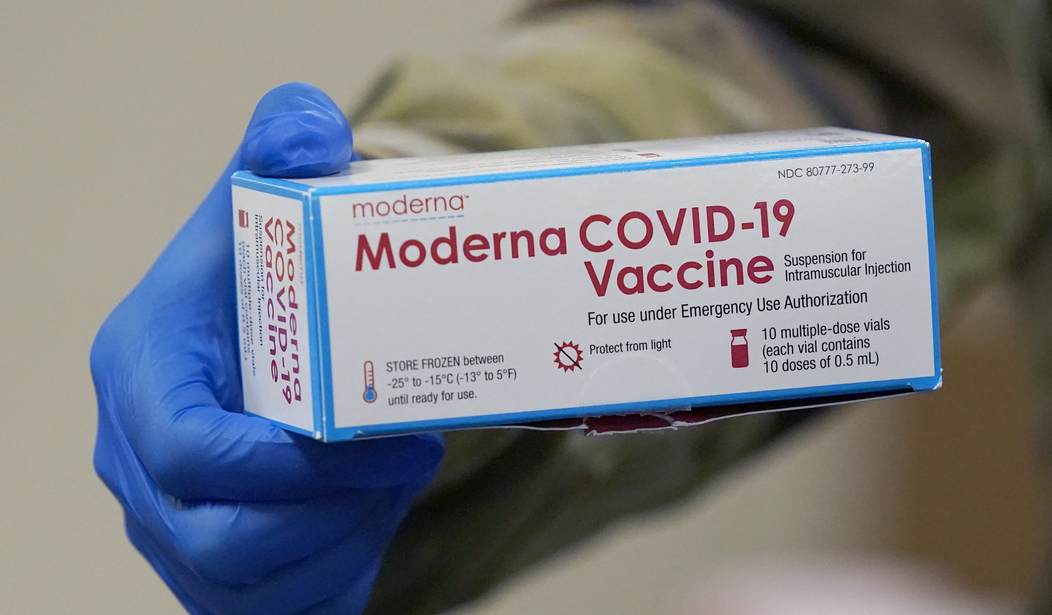In August, the White House announced it was moving forward with a Wuhan coronavirus booster shot program, which is expected to be rolled out on September 20.
"Planning to Offer COVID-19 Booster Shots Starting the Week of September 20: Today, public health and medical experts from the U.S. Department of Health and Human Services (HHS) announced a plan for administering booster shots later this fall, pending final Food and Drug Administration (FDA) evaluation and recommendations from the Centers for Disease Control and Prevention’s (CDC’s) Advisory Committee on Immunization Practices (ACIP)," the White House website states. "Under this plan, a booster would be administered, eight months after an individual’s second dose, beginning the week of September 20—at which point those individuals who were fully vaccinated earliest in the vaccination rollout will be eligible, including many health care providers, nursing home residents, and other seniors."
Two weeks ago, leading officials at the FDA resigned over the politicization of the booster shot process and a rush by Dr. Anthony Fauci and CDC Director Rochelle Walensky to implement the program before adequate data was available for an official recommendation.
"Marion Gruber, director of the FDA’s Office of Vaccines Research & Review, and deputy director Phil Krause will exit the agency in October and November, respectively, according to a letter shared with CNBC by FDA spokeswoman Stephanie Caccomo," CNBC reports. "Their announced plans to depart come as the Biden administration prepares to begin offering Covid vaccine booster shots to the general public the week of Sept. 20. Some health experts saw the move as premature and political, especially because the FDA hasn’t finished reviewing data on boosters yet."
Recommended
And now, we have more information about FDA officials pumping the brakes on moving forward prematurely. From AP:
The average person doesn’t need a COVID-19 booster yet, an international group of scientists — including two top U.S. regulators — wrote Monday in a scientific journal.
The experts reviewed studies of the vaccines’ performance and concluded the shots are working well despite the extra-contagious delta variant, especially against severe disease.
“Even in populations with fairly high vaccination rates, the unvaccinated are still the major drivers of transmission” at this stage of the pandemic, they concluded.
The opinion piece, published in The Lancet, illustrates the intense scientific debate about who needs booster doses and when, a decision the U.S. and other countries are grappling with.
After revelations of political meddling in the Trump administration’s coronavirus response, President Joe Biden has promised to “follow the science.” But the review raises the question of whether his administration is moving faster than the experts.
The authors include two leading vaccine reviewers at the Food and Drug Administration, Drs. Phil Krause and Marion Gruber, who recently announced they will be stepping down this fall.
During a recent press briefing, Coronavirus Response Coordinator Jeffery Zients justified the decision to move forward.
"The booster decision, which you referenced, is --we’ve talked about the decision -- was made by and announced by the nation’s leading public health officials, including Dr. Walensky; Dr. Fauci; Surgeon General Vivek Murthy; Dr. Janet Woodcock, the FDA Acting Commissioner; Dr. Francis Collins; Dr. Kessler; and others," Zients told reporters. "And as our medical experts laid out, having reviewed all of the available data, it is in their clinical judgment that it is time to prepare Americans for a booster shot. We announced our approach in order to stay ahead of the virus, give states and pharmacies time to plan, and to be transparent with the American people as to the latest data and expert clinical judgments from the team to give them time to do their own planning."

























Join the conversation as a VIP Member